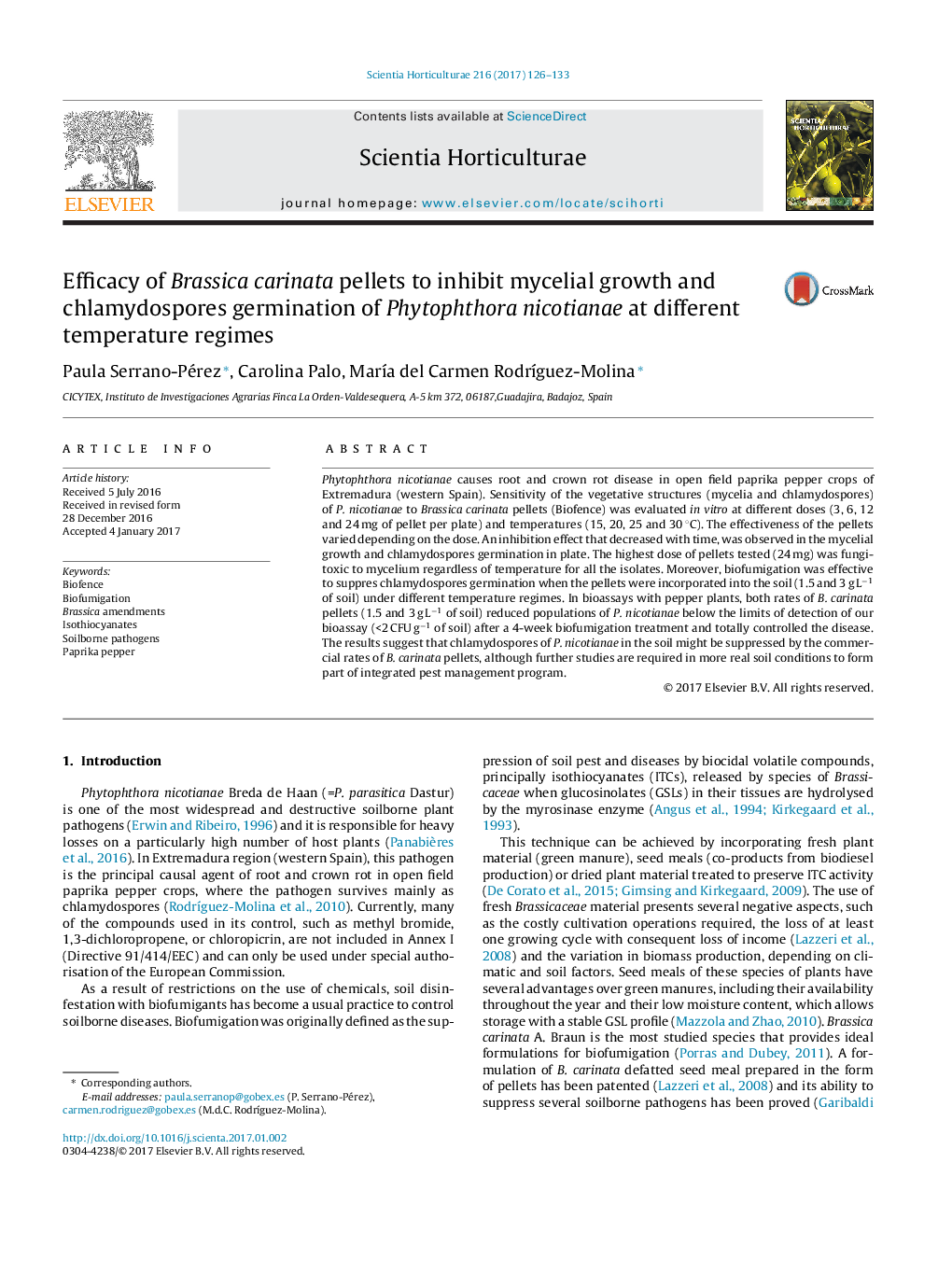| Article ID | Journal | Published Year | Pages | File Type |
|---|---|---|---|---|
| 5769762 | Scientia Horticulturae | 2017 | 8 Pages |
Abstract
Phytophthora nicotianae causes root and crown rot disease in open field paprika pepper crops of Extremadura (western Spain). Sensitivity of the vegetative structures (mycelia and chlamydospores) of P. nicotianae to Brassica carinata pellets (Biofence) was evaluated in vitro at different doses (3, 6, 12 and 24 mg of pellet per plate) and temperatures (15, 20, 25 and 30 °C). The effectiveness of the pellets varied depending on the dose. An inhibition effect that decreased with time, was observed in the mycelial growth and chlamydospores germination in plate. The highest dose of pellets tested (24 mg) was fungitoxic to mycelium regardless of temperature for all the isolates. Moreover, biofumigation was effective to suppres chlamydospores germination when the pellets were incorporated into the soil (1.5 and 3 g Lâ1 of soil) under different temperature regimes. In bioassays with pepper plants, both rates of B. carinata pellets (1.5 and 3 g Lâ1 of soil) reduced populations of P. nicotianae below the limits of detection of our bioassay (<2 CFU gâ1 of soil) after a 4-week biofumigation treatment and totally controlled the disease. The results suggest that chlamydospores of P. nicotianae in the soil might be suppressed by the commercial rates of B. carinata pellets, although further studies are required in more real soil conditions to form part of integrated pest management program.
Related Topics
Life Sciences
Agricultural and Biological Sciences
Horticulture
Authors
Paula Serrano-Pérez, Carolina Palo, MarÃa del Carmen RodrÃguez-Molina,
